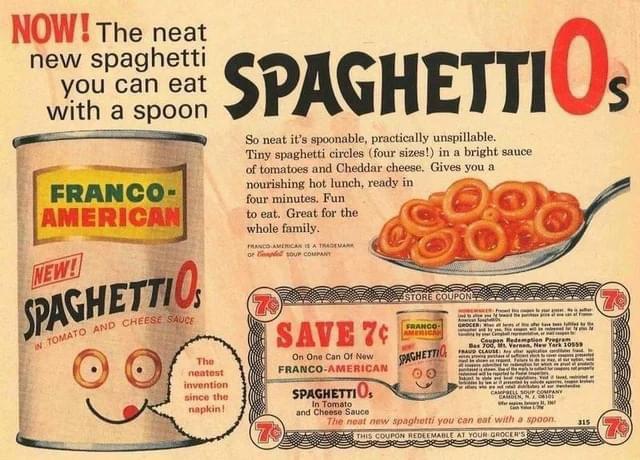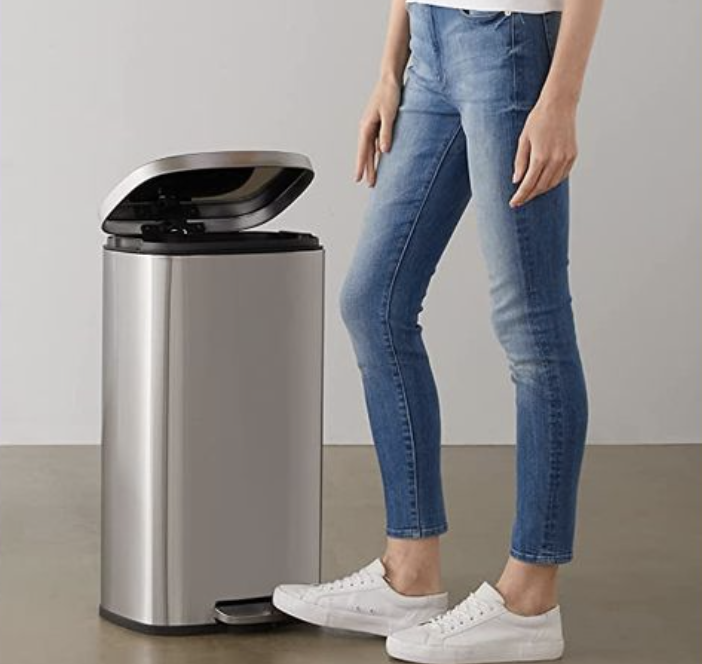When I was a wee one, maybe four or five, my mom had gone back to work as a nurse, and she needed to find a babysitter / kid watcher for me. A nearby neighbor whose young kids were at home fit the bill, and so I went there day after day, to her home.
I remember when I first started going to her place, she asked me what I liked to eat for lunch.
“SpaghettiOs and peanut butter and jelly sandwiches” was what I told her.
Such foods I didn’t get much at home, my mother being quite the cook-it-from-scratch kind of gal. I’m sure my mom made some sandwiches here and there, but clearly — by my young-child definition of needs — I wasn’t getting a sufficient amount of PB&J, or maybe that’s all I could think of when asked.
In any case, much to my surprise she complied and gave me what I wanted.
I remember being quite excited the first time she served me SpaghettiOs. This Campbell Soup Company product had been created just a few years prior, and TV ads for this modern miracle of less messy spaghetti kids could eat with a spoon — replete with the memorable jingle, “Uh-oh, SpaghettiOs” — were everywhere! The images, the promises of yumminess, the jingle — it had all penetrated deep into my child’s mind of desire and want and need.
And, oh, how wonderful it was when I ate that first bowl of SpaghettiOs. It was all the things They had said it would be: spaghetti, in O shapes that I could eat with a spoon, tasty. I had a sense, then, that I managed to create a loophole in the adult world by getting my babysitter to give me foods my mother had little desire or propensity to prepare for me. Life was good.
on and on
My mom kept working; I kept going to this babysitters home, and she kept feeding me SpaghettiOs and PB&J sandwiches.
I probably tired of the SpaghettiOs after just a few bowls. They weren’t actually that tasty. Or filling. Or nutritious. And while my five-year-old self’s mind didn’t know then that cheap-wheat products, e.g. pasta, and canned foods chockfull of chemical additives, were probably some of the worst foods for me to eat, I knew I was quickly tiring of SpaghettiOs. And when she served the kind with the meatballs or the “franks” inside (bits of hot dog), well, I could barely stomach it.
I didn’t know then how to advocate for myself. I didn’t know how to tell her that what I had thought I had wanted, I didn’t want anymore. And I didn’t know how to ask for what I wanted instead (real food, the kind my mom cooked).
But I do remember thinking two things: 1) what ads promise you and what you get aren’t always the same thing (wise insights for a child my age) and 2) it was important to be clear with myself first when asking for what I wanted from another.
I won’t say I became a master of Insight #2 overnight, though I do believe Insight #1 started to worm its way into me, becoming foundational to my experience as a young Gen Xer. The overall societal message Xer children got was, essentially, “You’re going to need to look out for your own interests because no one else will do it for you,” and “Watch out as adults don’t always tell the truth and they may even be out to dupe you.”
As one destined to be a writer, I felt this experience was foundational to my worldview formation in that it was important to tell people the truth, particularly when describing products and services. I knew that the SpahettiOs I’d been promised, and what was delivered didn’t line up. And that simply wasn’t fair or right in my five year-olds’ mind.





